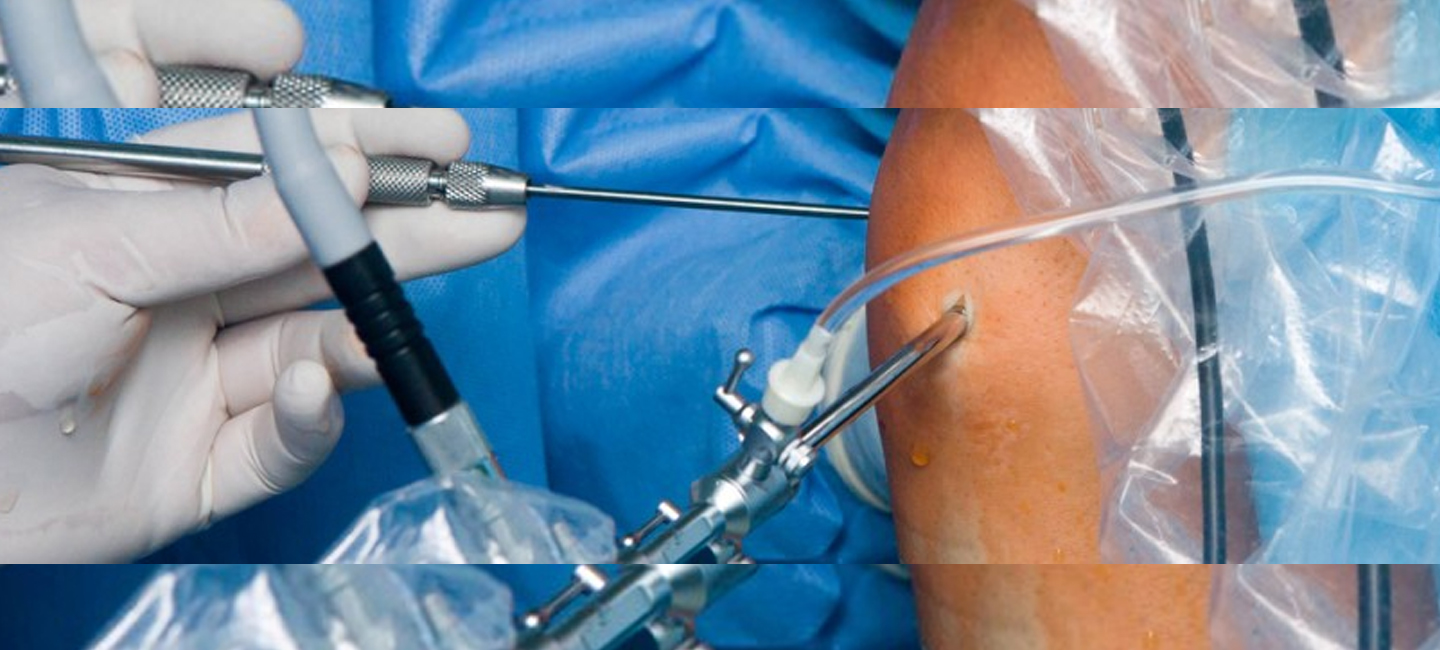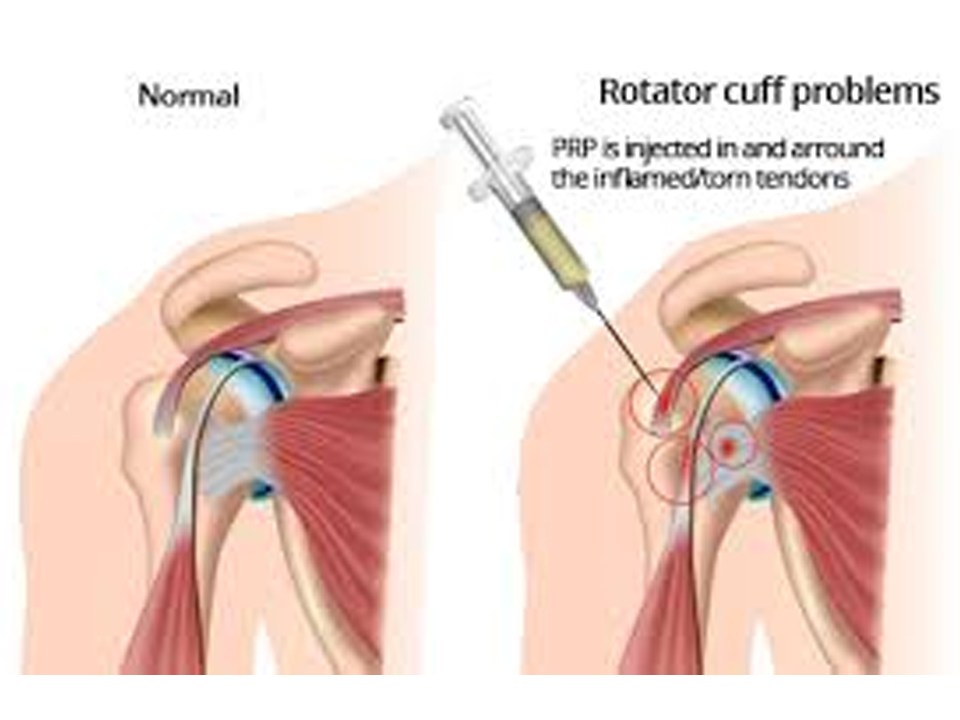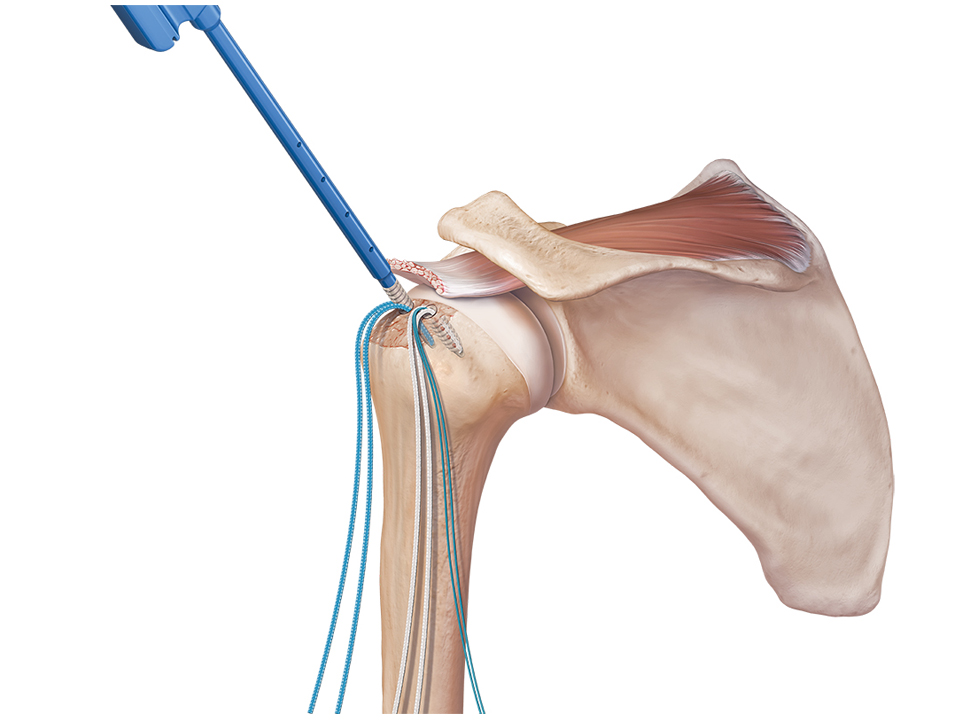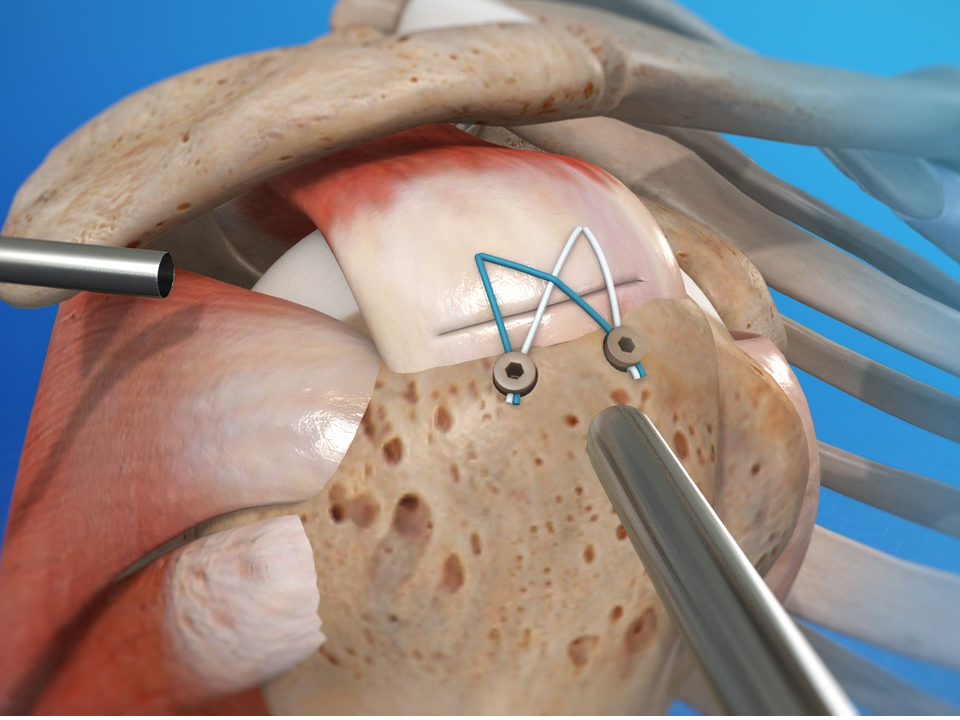Arthroscopic Rotator Cuff Repair

- What is Rotator cuff?
The rotator cuff is a group of four muscles (supraspinatus, infraspinatus, teres minor and subscapularis) that come together as tendons to form a covering around the head of the humerus. The rotator cuff attaches the humerus to the Shoulder blade and helps to lift and rotate your arm.
- What are the causes for rotator cuff tear?
Acute rotator cuff tears happen when you fall down on your outstretched hand with a locked elbow or lifting heavyweight with a jerking motion. Usually, happen with Shoulder dislocation
Degenerative tears are the result of a wearing down of the tendon that occurs slowly over time. Repeating the same Shoulder motions, again and again, can stress your rotator cuff muscles and tendons. Baseball, tennis, rowing, and weightlifting are examples of sports activities that can put you at risk for overuse tears. Many jobs involving weight lifting also increases the risk of tear.
- What are the symptoms of rotator cuff tears?
The most common symptoms of rotator cuff tears are Shoulder pain when lifting and lowering your arm, weakness when lifting or rotating your arm, crepitus or crackling sensation when moving your Shoulder in certain positions. Sometimes there may be pain at rest and at night, particularly if lying on the affected side and snapping sensation over the Shoulder.
- What are the types of rotator cuff tears?
1. Partial tear is an incomplete tear. It damages the tendon, but does not completely sever it. 2. Full-thickness tear is a complete tear. It separates all of the tendon from the bone.
- How the rotator cuff tears treated?
There are various options depending on the type of tear, your age, activity level and requirements. Options will be discussed with you
Nonsurgical options:
Nonsurgical Treatment: When the rotator cuff tear is small nonsurgical options are advised.
Options may include,
- Rest to the Shoulder with sling immobilisation and limiting the Shoulder activities.
- Ice packs to Shoulder daily for 20 min
- Nonsteroidal anti-inflammatory medication. Drugs like ibuprofen and naproxen reduce pain and swelling.
- Physiotherapy to strengthen your Shoulder muscles.
- Local steroid (depomedrol) injection
- Platelet rich plasma (PRP)
Surgical options::
The three techniques most commonly used for rotator cuff repair are,
- Traditional open repair
- Arthroscopic repair
- Mini-open repair
The technique of repair depends on the size of your tear, your anatomy, and the quality of the tendon tissue and bone.
When Rotator Cuff surgery is indicated?:
When Rotator Cuff surgery is indicated?
- Your tear was caused by a recent, acute injury
- Your symptoms have lasted 6 to 12 months
- You have a large tear (more than 3 cm) and the quality of the surrounding tissue is good
- You have significant weakness and loss of function in your Shoulder
- How rotator cuff repaired?
Usually done under the combined brachial block and general anesthesia. The surgeon makes two small key holes in the Shoulder to insert an arthroscope into the joint. At first complete visualization of the Shoulder joint done to assess the structures. The torn rotator cuff is reattached to the humerus using anchors. The entire surgery performed through a minimally-invasive arthroscopic procedure and all inside technique.
- How long I need to stay in the hospital after the rotator cuff repair?
Many rotator cuff repairs are done on day-care basis and do not require you to stay overnight in the hospital.
- How will be my recovery after rotator cuff repair?
You will be advised simple Shoulder exercises immediate post-surgery and Shoulder immobilizer for 3 weeks followed by Shoulder exercises as per the protocol. You can return to all normal activities and sports by 3 months
- What will happen if the Rotator Cuff not repaired?
If you have a rotator cuff tear and you keep using it despite increasing pain, you may cause further damage. A rotator cuff tear can get larger over time, eventually, you may develop wear and tear or arthritis of the Shoulder joint named “cuff tear arthropathy”. Then after this joint replacement surgery becomes inevitable for restoring the function.



